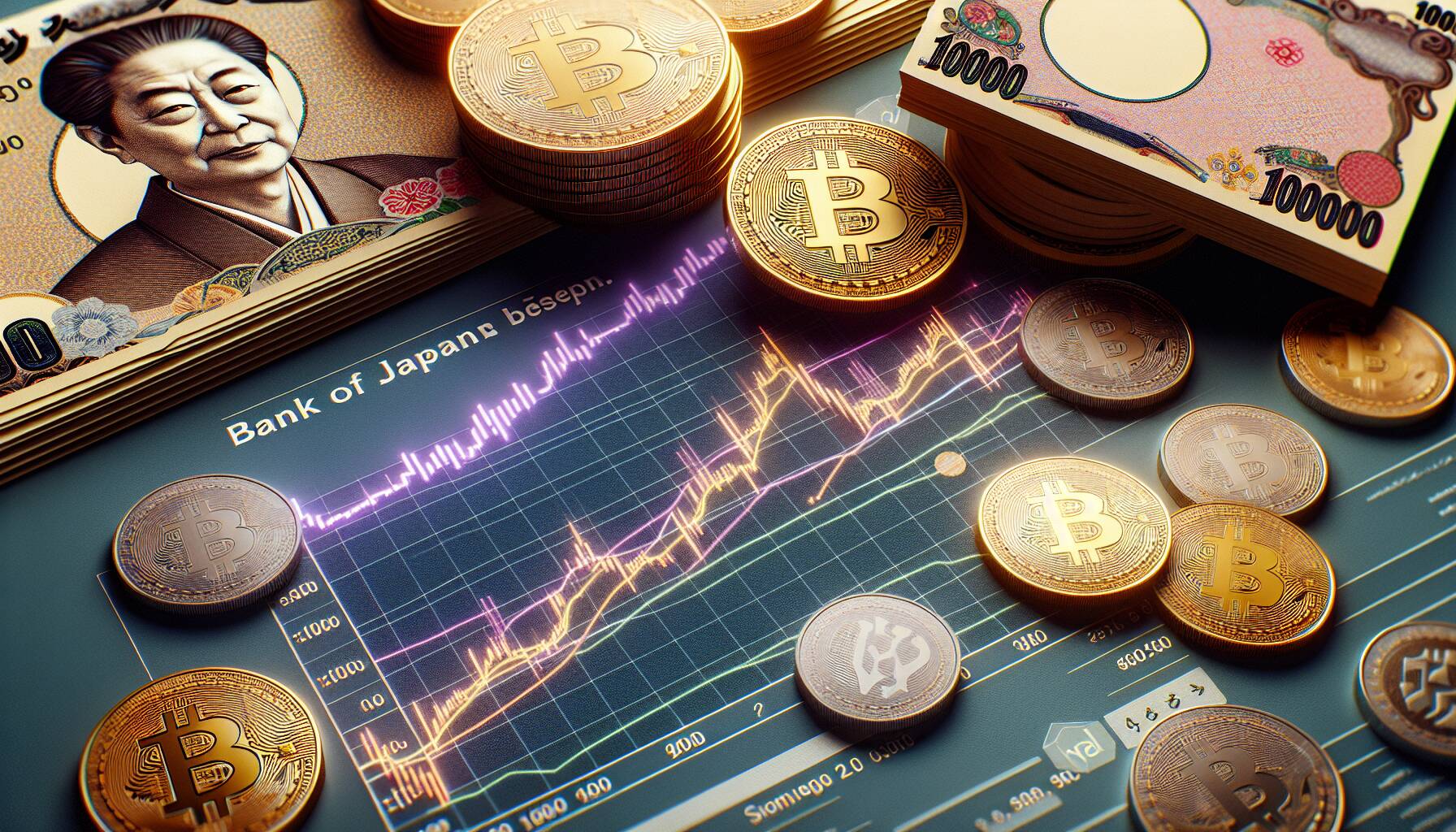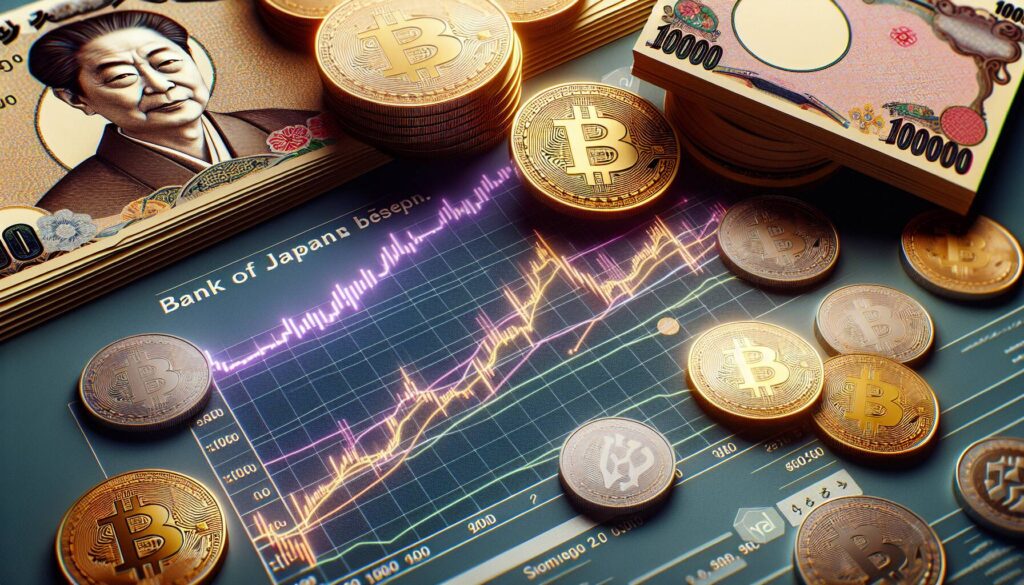The cryptocurrency landscape saw a relatively muted response from Bitcoin (BTC) following recent monetary developments in Japan. On Wednesday, the Bank of Japan (BOJ) decided to maintain its benchmark interest rate at 0.5%, a move that was largely anticipated by financial markets. This decision comes as the BOJ is closely monitoring the effects of U.S. trade policies, particularly those introduced by President Donald Trump, which present “high uncertainties” for Japan’s export-dependent economy.
BOJ Governor Kazuo Ueda specifically noted the importance of keeping a close eye on how these U.S. tariffs might influence both global and domestic markets. The implications of such policies can have cascading effects, especially in a world where economic conditions are intrinsically linked across borders.
As the Federal Reserve in the U.S. prepares for a meeting, where similar expectations of maintaining rates prevail, the interconnectedness of global monetary policies continues to play a crucial role in shaping investor sentiment around cryptocurrencies. Historically, movements in Japan’s monetary policy and bond yields have had a nuanced impact on Bitcoin prices. Typically, a rising yen and increasing bond yields tend to draw investment away from Bitcoin, favoring traditional assets instead. Conversely, a stable or declining yen can enhance Bitcoin’s appeal as a reliable alternative store of value.
Interestingly, even when the BOJ opted for a rate hike earlier in the year, Bitcoin’s price remained stable, suggesting that market attention was focused more on potential shifts in U.S. policy under Trump rather than immediate monetary changes in Japan.
With the BOJ’s latest decision keeping Japanese bond yields stable, we may see continued limited pressure on Bitcoin’s valuation in the near term. As the global economic landscape evolves, the interplay between cryptocurrencies and traditional financial markets remains a captivating narrative for both investors and analysts alike.

Impact of Bank of Japan’s Interest Rate Decision on Bitcoin Prices
The recent announcement by the Bank of Japan (BOJ) regarding its interest rate policy has implications for the cryptocurrency market, particularly Bitcoin. Here are the key points to consider:
- BOJ Holds Interest Rate Steady
- The BOJ maintained its benchmark interest rate at 0.5%.
- This decision aligns with market expectations, showing stability in Japanese monetary policy.
- Impact of U.S. Tariffs
- Uncertainties regarding U.S. tariffs under President Trump may affect Japan’s export-driven economy.
- The BOJ aims to monitor these potential impacts on trade relations.
- The Relation between Yen Strength and Bitcoin
- A stronger yen generally attracts investment towards traditional assets, which can negatively impact Bitcoin prices.
- A stable or weaker yen enhances Bitcoin’s appeal as an alternative investment vehicle.
- Influence on Capital Flows
- The current hold on interest rates keeps Japanese bond yields in check.
- This stability limits downward pressure on Bitcoin, as fewer investors may shift their capital to bonds.
- Market Reactions to Policy Changes
- Historically, Bitcoin prices have shown resilience during previous BOJ rate hikes, especially when attention was focused on U.S. policy development.
- The interplay between global monetary policies can create investment opportunities for crypto market participants.
Considering these points, the decisions made by the BOJ and the ongoing dialogue around U.S. tariffs could significantly influence how investors perceive Bitcoin and its role in their portfolios. Keeping an eye on these economic indicators can help individuals make informed decisions regarding their investments in cryptocurrency.
Impact of BOJ’s Rate Decision on Bitcoin Markets: A Comparative Analysis
As the Bank of Japan (BOJ) opted to maintain its benchmark interest rate at 0.5%, the reaction in the bitcoin (BTC) market was notably muted. This aligns with the broader financial landscape, where various central banks, including the U.S. Federal Reserve, are grappling with similar interest rate stabilizations amidst the backdrop of potential trade tensions. In contrast to previous rate hikes, which have historically influenced bitcoin’s volatility, this decision from the BOJ serves as a stabilizing force in the current economic climate.
Competitive Advantages: For bitcoin enthusiasts and investors, the BOJ’s steadying policy could translate into a more inviting environment, particularly when the traditional markets display fluctuations driven by external factors like U.S. tariffs under President Trump’s administration. With a stable or weaker yen often enhancing the appeal of cryptocurrencies, investors might find themselves viewing BTC as a safe harbor against potential currency depreciation. Additionally, a lack of drastic changes in monetary policy from major economies may encourage some capital inflow into digital assets as a hedging strategy.
Disadvantages: However, it’s essential to recognize potential drawbacks. The BOJ’s cautious approach comes in the face of significant uncertainties affecting trade policies, which can overshadow any immediate advantages for bitcoin. If Japan’s economy suffers as a consequence of the tariffs, it could result in a ripple effect that dampens investor sentiment and pressure on BTC prices despite favorable monetary conditions. Furthermore, in times of financial stability, some investors may gravitate towards traditional assets, leading to potential capital flight from cryptocurrencies, underlining a more competitive environment between these investment avenues.
Who Benefits and Who Faces Challenges: Savvy investors and speculators could find opportunities amid these circumstances, utilizing BTC as a hedge against conventional market volatility. On the other hand, for those closely tied to the traditional financial sectors or corporate export businesses in Japan, the lingering uncertainties of the tariffs and cautious monetary policy could pose challenges. The subtle dance between interest rates and market confidence thus becomes crucial for both cryptocurrency investors and traditional market players as they navigate through these ever-evolving economic landscapes.















